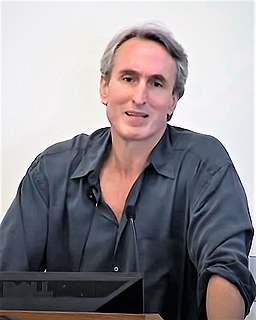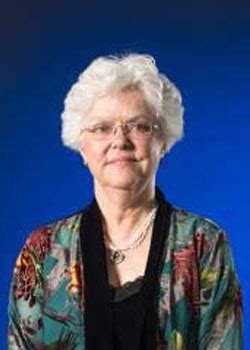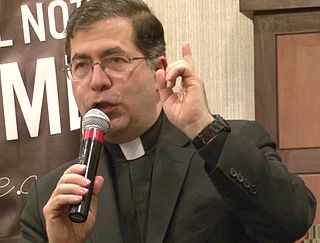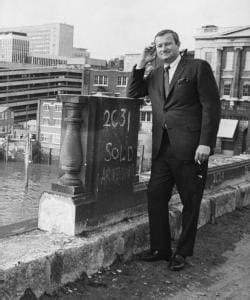A Quote by Rush D. Holt, Jr.
There needs to be a public dawning - and it is beginning to dawn on some members of the public - that how science is practiced actually makes a difference in their lives. If evidence becomes optional, if ideological assertions or beliefs are just as good as scientifically vetted evidence, then their quality of life suffers. I think that's dawning on people. There's a level of concern unlike anything I've seen.
Related Quotes
What sets science and the law apart from religion is that nothing is expected to be taken on faith. We're encouraged to ask whether the evidence actually supports what we're being told - or what we grew up believing - and we're allowed to ask whether we're hearing all the evidence or just some small prejudicial part of it. If our beliefs aren't supported by the evidence, then we're encouraged to alter our beliefs.
There exists a mountain of circumstantial evidence that consciousness survives bodily death. This is the kind of evidence that would stand up in a court of law. Some people believe that science needs better tools to quantify what consciousness is. Perhaps when we discover what consciousness is we will be on the road to providing absolute scientific evidence that there is life after death.
The best way to alleviate the obesity "public health" crisis is to remove obesity from the realm of public health. It doesn't belong there. It's difficult to think of anything more private and of less public concern than what we choose to put into our bodies. It only becomes a public matter when we force the public to pay for the consequences of those choices.
Have you ever seen the dawn? Not a dawn groggy with lack of sleep or hectic with mindless obligations and you about to rush off on an early adventure or business, but full of deep silence and absolute clarity of perception? A dawning which you truly observe, degree by degree. It is the most amazing moment of birth. And more than anything it can spur you to action. Have a burning day.
That elections of members to serve as representatives of the people, in assembly, ought to be free; and that all men, having sufficient evidence of permanent common interest with, and attachment to, the community, have the right of suffrage, and cannot be taxed or deprived of their property for public uses, without their own consent, or that of their representives so elected, nor bound by any law to which they have not, in like manner, assembled, for the public good.
I am a nonbeliever myself. But I think there's so much about religion that is not factual in nature as to why people engage with it and what it means to them. You can debunk why you think there's no physical evidence for God and why the story of Jesus didn't really happen that way and stuff like that all the live-long day, and it's not going to make a difference to what role religion has in people's lives and how they feel about it and how it makes their lives better or worse.
But what, after all, is faith? It is a state of mind that leads people to believe something - it doesn't matter what - in the total absence of supporting evidence. If there were good supporting evidence then faith would be superfluous, for the evidence would compel us to believe it anyway. It is this that makes the often-parroted claim that 'evolution itself is a matter of faith' so silly. People believe in evolution not because they arbitrarily want to believe it but because of overwhelming, publicly available evidence.
We all have one other world we live in: our public world. Some people call it our public persona. This is the world where someone who doesn't know you privately, personally, or professionally hears your name and has some opinion about you one way or another. So the question becomes: where is integrity rooted? Some people think it's rooted in their public life. They spend all of their time trying to spin their public image. It's not rooted there, however. It's simply revealed there. People who lack integrity will have it revealed publicly.































